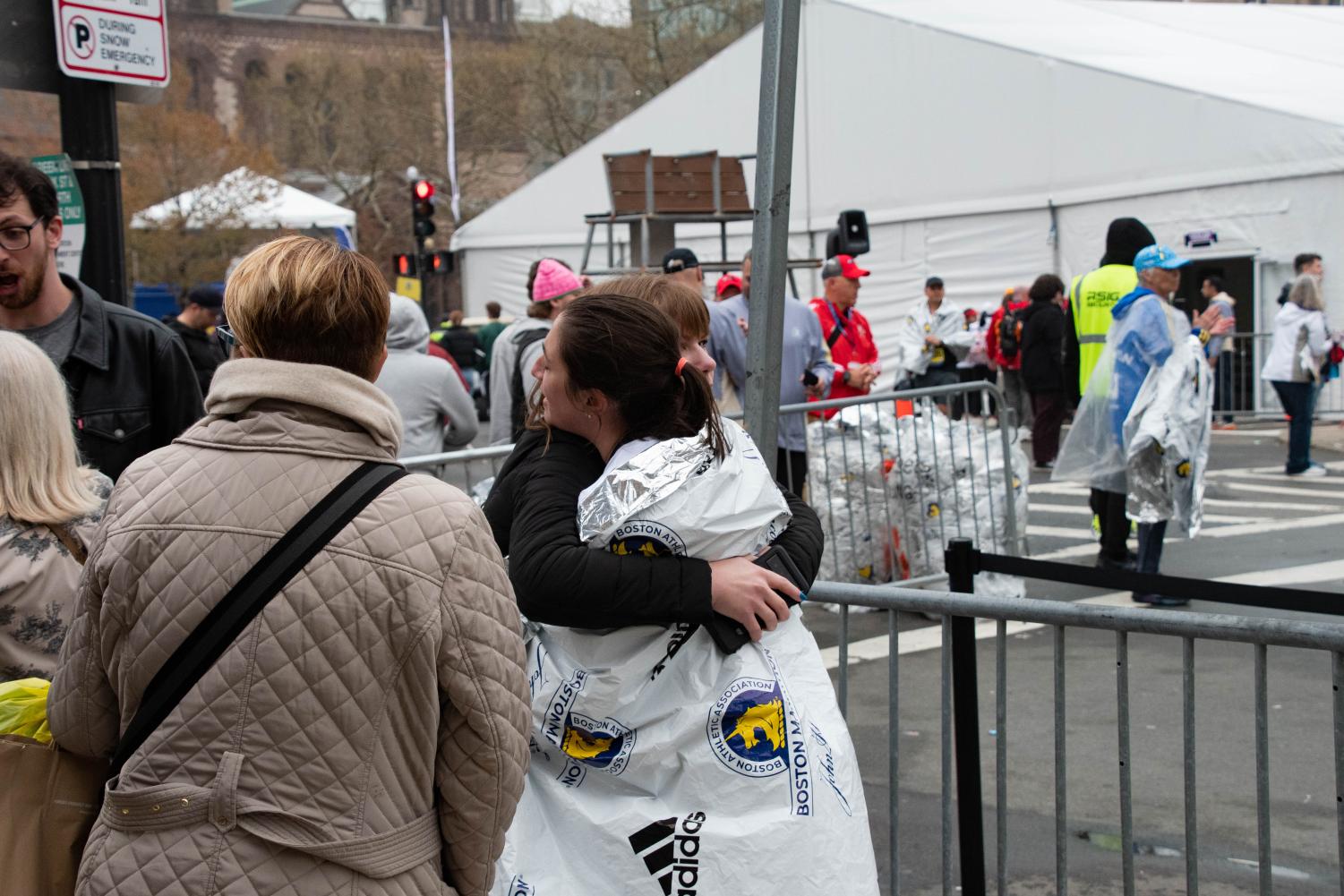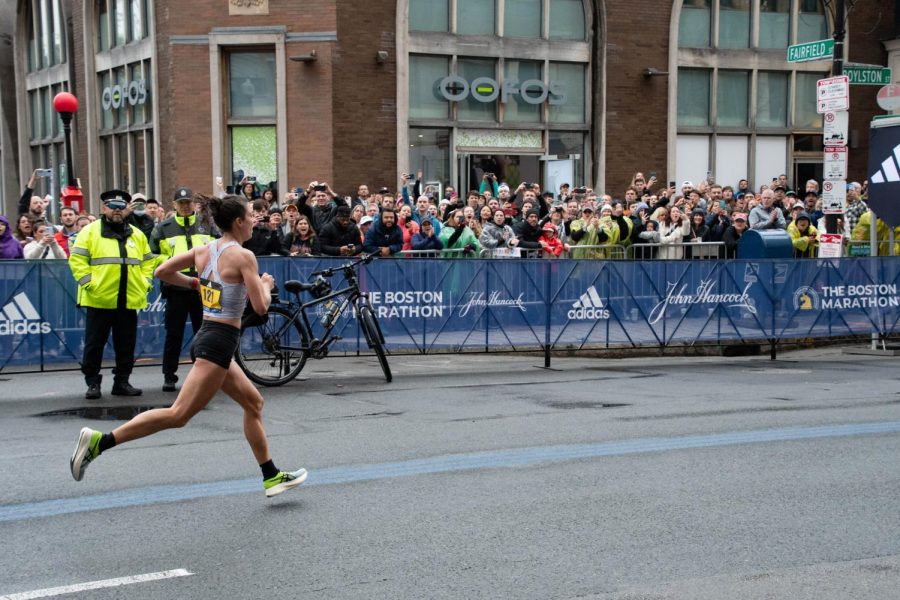Athletes overcome difficulties to flourish in 127th Boston Marathon
A runner passes a crowd during the 127th Boston Marathon. The event took place April 17.
May 10, 2023
Monday, April 17 marked the 127th Boston Marathon, the world’s oldest running marathon. Nearly 30,000 athletes flocked from around the globe to compete, but despite the event’s fame and popularity, it hasn’t been an easy road for many.
“It really was more than a marathon this entire weekend,” said Jack Fleming, CEO and president of the Boston Athletic Association.
This year’s contest was the 10th anniversary of the Boston Marathon bombing, and it was reflected not just by the city’s commemoration, but the community-wide support as well. Many attendees sported “Boston Strong” shirts in the race’s trademark blue and yellow and lined the 26.2-mile path in support of not just the runners, but also all those affected by the tragedy just a decade ago.
“It was such a pleasure to take part [in] that, to see the community come back so strong on this 10-year anniversary,” said Susannah Scaroni, the winner of the women’s wheelchair division.
The Marathon wasn’t the only event on the docket; the BAA also put on an expo with many sponsors and speakers, a fan fest featuring live music and activities and a post-race party to celebrate the athletes’ accomplishments.
Those accolades have expanded over the years, as the Boston BAA has added a number of racing divisions to its record. In 2017, the organization began recognizing winners for men’s and women’s handcycling; in 2021, the Boston Marathon became the first major marathon to have a competitive Para Athletes Division, including honors for visual impairment, lower limb impairment and upper limb impairment; and this year, the City of Boston incorporated the inaugural Fastest Bostonian awards.
The local title in the men’s division went to Northeastern student Vinny Castronuovo, one of 15 members of the university’s club running team who competed in the race.
Although the marathon went swimmingly for Castronuovo, many athletes had to overcome equipment malfunctions and poor weather conditions before reaching the finish line.

“Yesterday, my right wheel came loose around the 10k mark,” Scaroni said. “The unfortunate part is, yes, it has happened before. The fortunate part is I’ve learned over all of my long career now how to be better prepared and equipped.”
Mid-race challenges popped up among runners as well. Eliud Kipchoge, the current world marathon record-holder was a favorite coming into the event, but finished sixth, citing a leg issue.
“I tried to do the necessary, but it wasn’t working, so I put my mind just to running a comfortable pace and just to finish,” Kipchoge said.
Kipchoge was overtaken by Evans Chebet of Kenya who claimed his second consecutive victory in Boston.
While the physical strain of a marathon is hard enough to overcome, runners also discussed the mental barriers the race poses.
The women’s champion — Hellen Obiri — was still not used to the mental and physical stress of marathon running when she came into Boston. One of the world’s most successful mid-distance runners, Obiri recently switched to lengthier courses, and triumphed in just her second 26.2-mile event.
“It was a surprise to me, but I worked so hard toward this race and I was so strong in mental and focus to win this race yesterday,” Obiri said.
Although many athletes prospered, one issue affected the entire field: the weather. Marathon day brought intermittent showers, giving runners yet another obstacle in their path to the finish line.
“I never thought it was possible in these conditions, but it was a great day yesterday,” said Marcel Hug, who won his sixth men’s wheelchair title and broke the course record with a time of 1:17:06. “It was a great experience again to run here in Boston with this great atmosphere.”
Scaroni echoed Hug’s sentiment; although people come to the city of Boston to race, the community makes participating in the Marathon a special moment for all of its athletes.
“This year, the crowds truly gave me energy for so many parts of the race, and especially down Boylston Street,” Scaroni said. “I felt like I was getting pushed down the street.”
With all the difficulties that could arise throughout training and on race day, just participating in the Marathon is a major feat. Mental, physical and environmental barriers all fought back against runners, but thousands of athletes still managed to find their own success in the 127th Boston Marathon.
“I say ‘let me try and give it my best’ because you don’t know how far you’ll go,” Obiri said. “You can’t know what’s going to happen along the road.”







